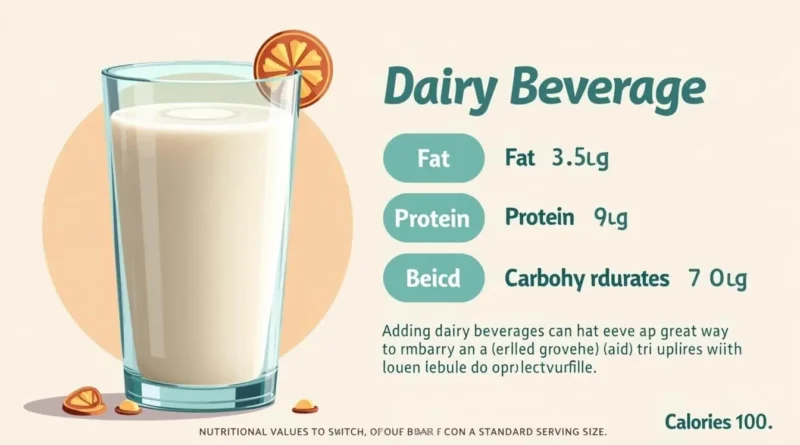Vitamins and Minerals Found in Whole Milk
Milk provides protein, vitamins and minerals along with energy (calories). Whole milk stands out from other options like skim and 2% milk in terms of its higher fat content.
Although those with high cholesterol or heart disease should consult their physician about limiting saturated fat consumption, most individuals can still enjoy milk in moderation.
Calcium
Calcium is one of the body’s most abundant minerals and helps maintain strong bones and teeth. Calcium also plays an essential role in blood clotting, muscle function and heart health – whole milk being an excellent source for this nutrient, with one cup providing 29% of your daily value of calcium! Fortified juices and cereals may provide additional sources of calcium supplementation; however dairy foods offer an easier solution as they contain vitamin D which aids absorption by the body.
Studies have demonstrated that diets rich in dairy products may reduce colorectal cancer risks and have positive impacts on heart health; however, other research indicates they could increase ovarian cancer and other forms of cancer risk.
grocery aisles today are filled with various kinds of milk products ranging from low-fat to skim, plant-based beverages and even frozen yogurts. Each option offers different nutritional benefits; while whole, low-fat and plant-based alternatives all provide calcium as well as essential vitamins A, D and B12.
Vitamin B12
One glass of whole milk provides an excellent source of vitamin B12. This essential nutrient aids red blood cell production and nerve health while simultaneously being essential in breaking down fat-soluble vitamins like A, D and K for metabolism.
Studies show that dairy products containing cobalamin (vitamin B-12) are highly bioavailable, making regular consumption beneficial in improving plasma vitamin B-12 levels and decreasing total homocysteine concentration among deficient individuals. Additionally, drinking milk regularly may also help lower total homocysteine (tHcy) concentration levels by up to 20% in deficient individuals.
Eggs are an excellent source of vitamin B12. In order to get the equivalent amount as two cups of whole milk, four eggs must be eaten every day to obtain sufficient Vitamin B12. Furthermore, overeating may raise cholesterol levels.
Nondairy alternatives like almond, soy and oat milks are great sources of Vitamin B12. Furthermore, many fortified cereals also provide this nutrient. People who are lactose intolerant or prefer low-fat or skim milk should consult a health professional prior to switching over; in these instances additional sources of Vitamin B12 might need to be obtained through supplementation.
Vitamin B2 (riboflavin)
Riboflavin is an essential nutrient and one of the two key coenzymes involved in oxidation-reduction reactions that fuel our bodies, while also playing an integral part in energy production, growth and development, eye health maintenance, as well as metabolism of various other vitamins such as B6, niacin and folate.
Milk is one of the richest dietary sources of riboflavin, providing 1/12th of our daily recommended value in just one cup. Furthermore, whole milk contains calcium which is vital to bone health; all dairy products also fortify with vitamin D for maximum nutrition and efficiency.
Deficits in vitamin B2 (riboflavin) may occur more rarely among those who do not consume enough dairy or fortified foods, leading to skin disorders and hair loss as symptoms. Because food-grade Vitamin B2 can be better absorbed than supplements, it is recommended to get most of your riboflavin through food sources rather than supplements.
Milk comes in various varieties to meet individual dietary requirements and taste preferences. Low-fat (2% milk) or fat-free milk usually provides all of the same nutrition as whole milk without the extra saturated fat and calories, though some individuals may require higher-fat options in order to obtain adequate levels of vitamins D, calcium and protein.
Vitamin B7 (biotin)
Biotin, also referred to as vitamin B7 or coenzyme R, is a water-soluble vitamin that plays an essential role in metabolism of fats, carbohydrates and proteins. Keratin production depends on Biotin as it gives strength to hair, nails and skin. Biotin also regulates blood sugar levels and may help alleviate symptoms associated with diabetes or multiple sclerosis.
Milk is an excellent source of vitamin B7, providing 21% of your recommended daily intake in 1 cup. Unfortunately, low-fat and fat-free dairy options, yogurt or any other food items do not supply enough of this essential nutrient.
As part of the process to produce low-fat and fat-free milks, vitamins can become depleted during separation of cream from rest of milk for production, which in turn decreases their nutritional value. It is wise to include milk even if following a lower-fat or fat-free eating plan since often the only difference among types is in terms of the amount of fat present – so be sure to read labels and select an option that meets your dietary needs as well as keeping track of total calories per serving to stay on target with your goals!
